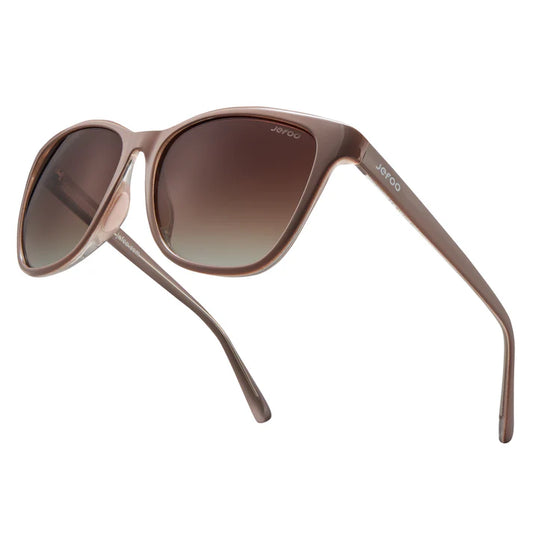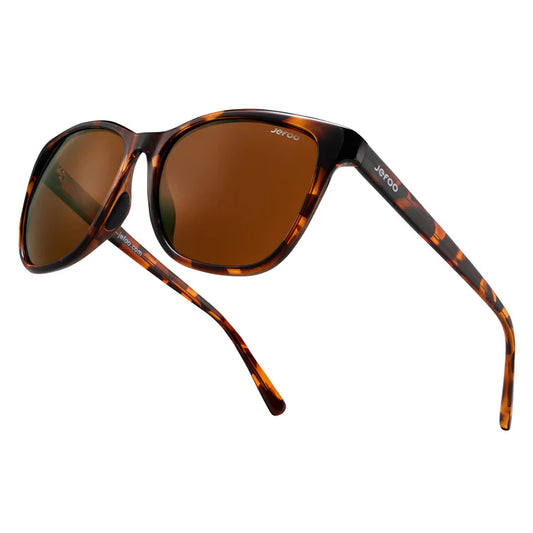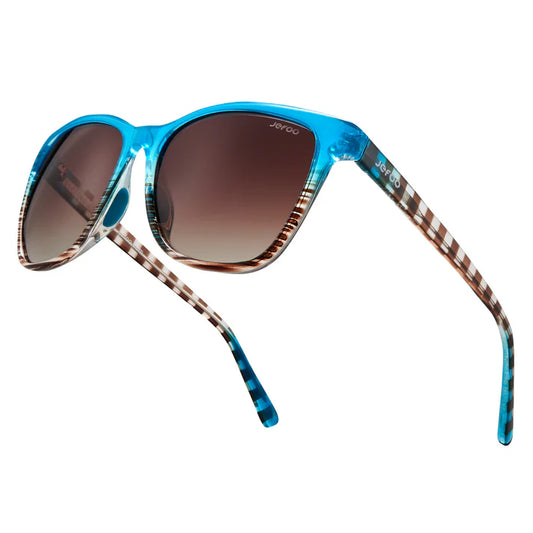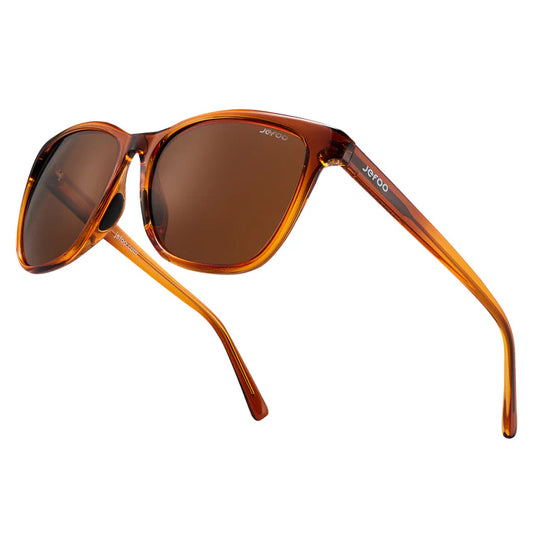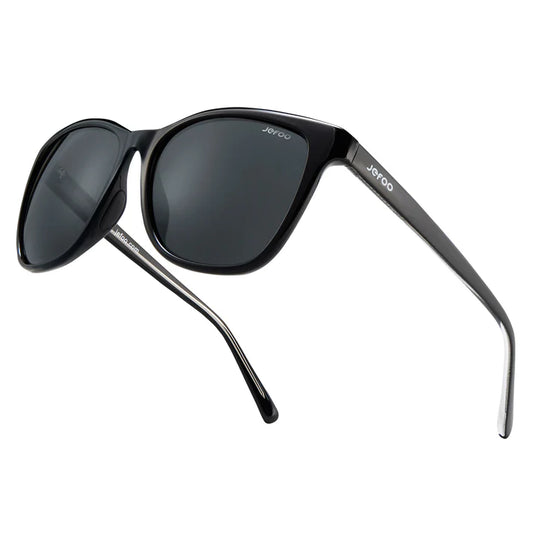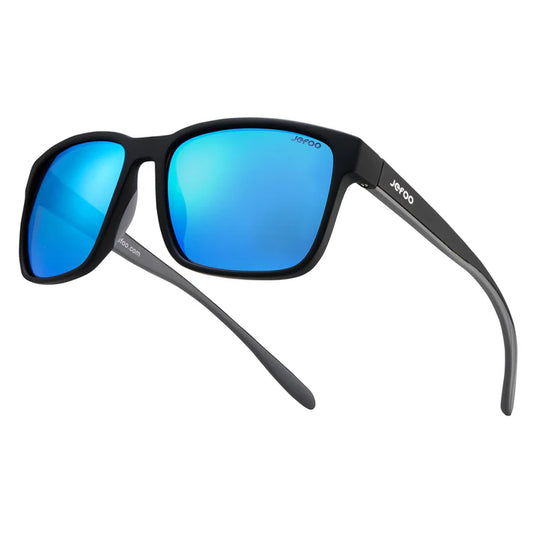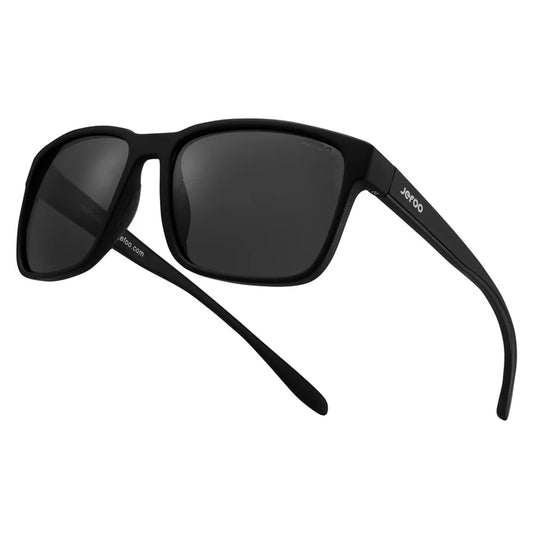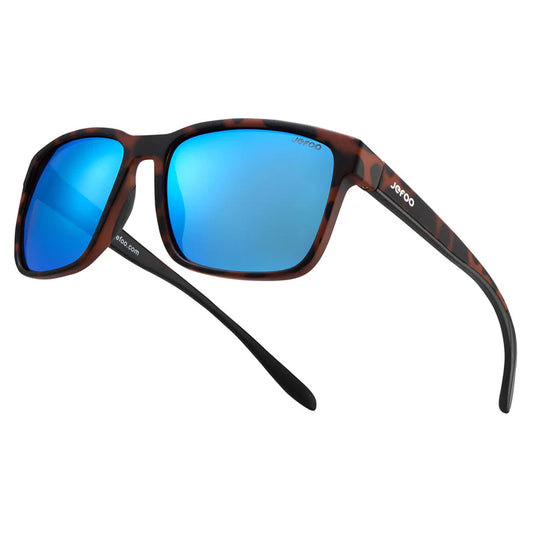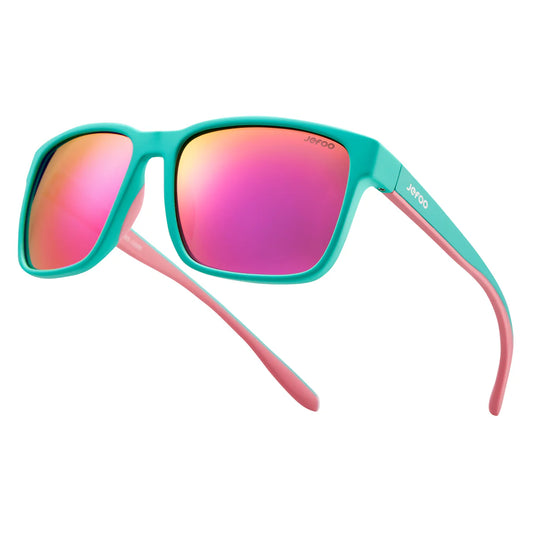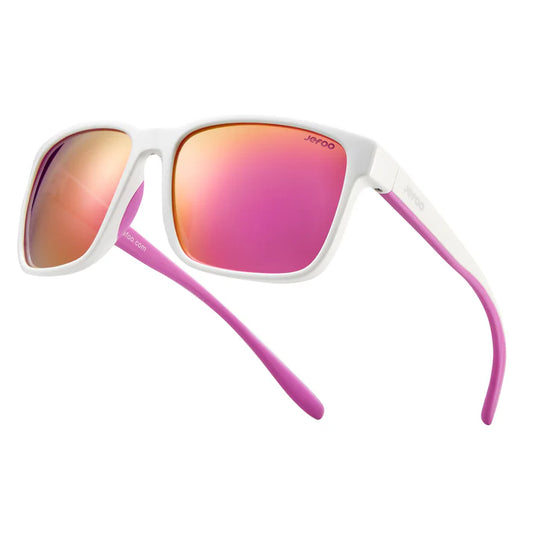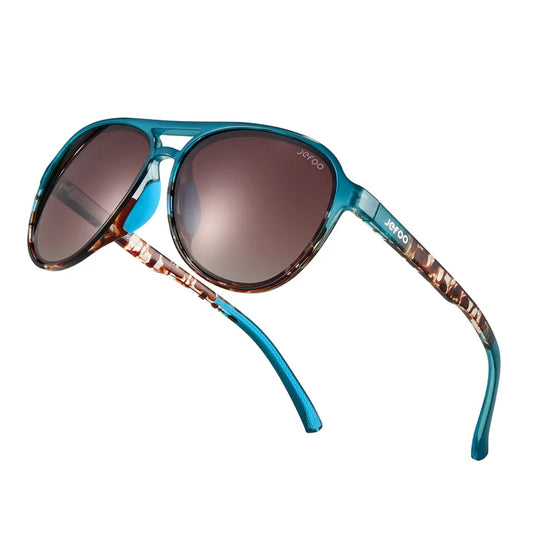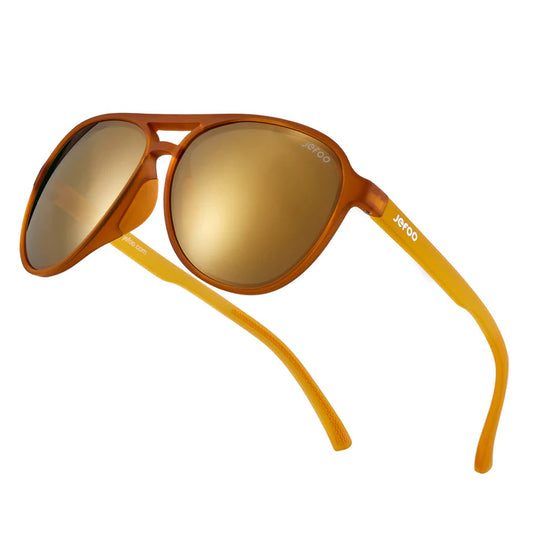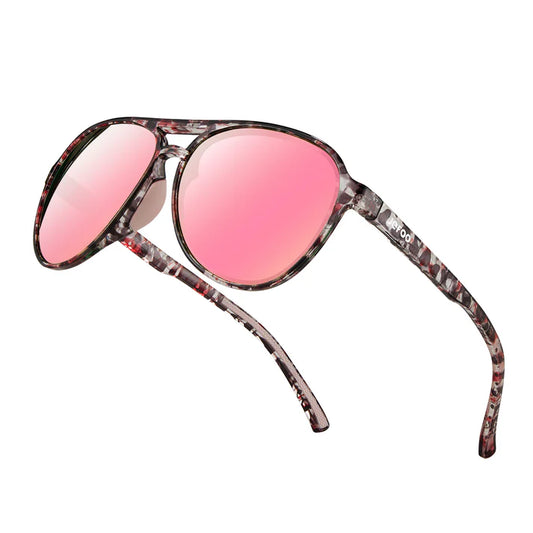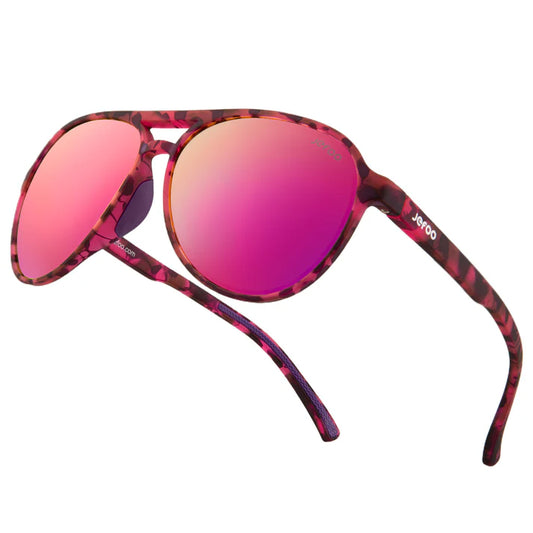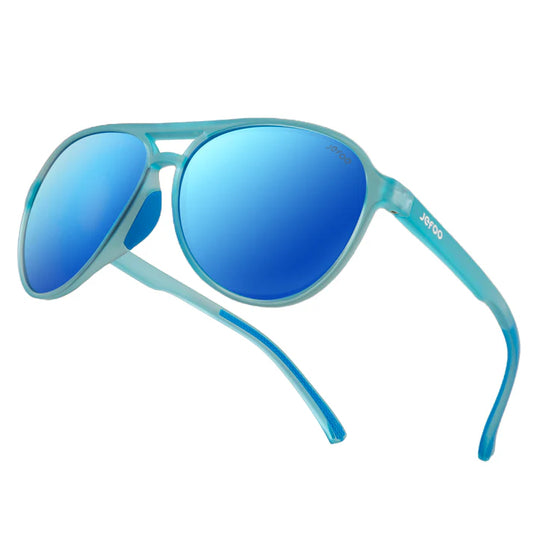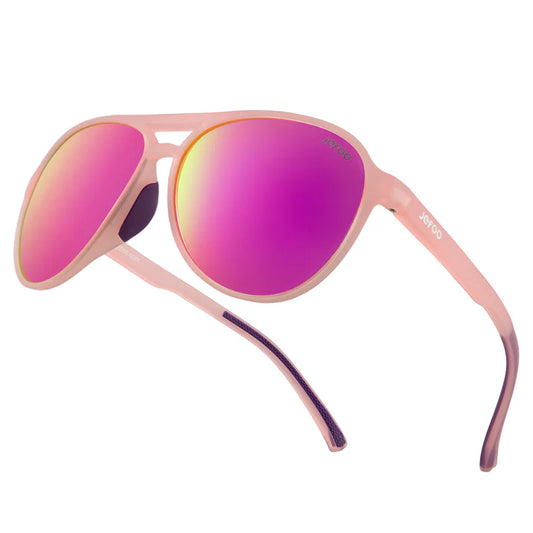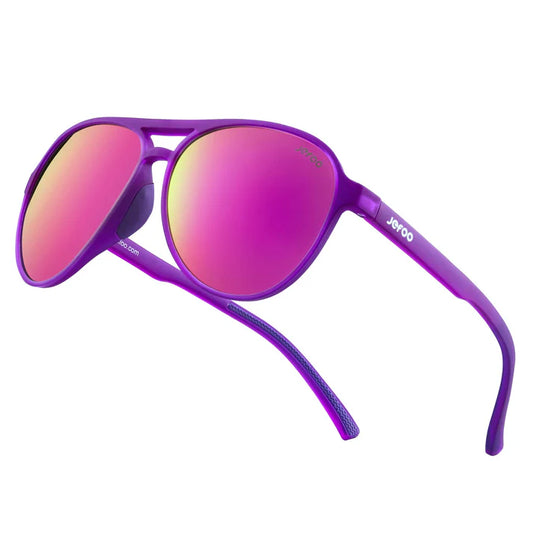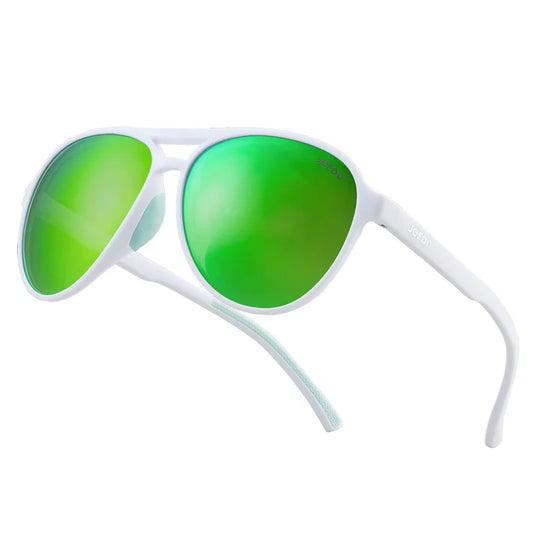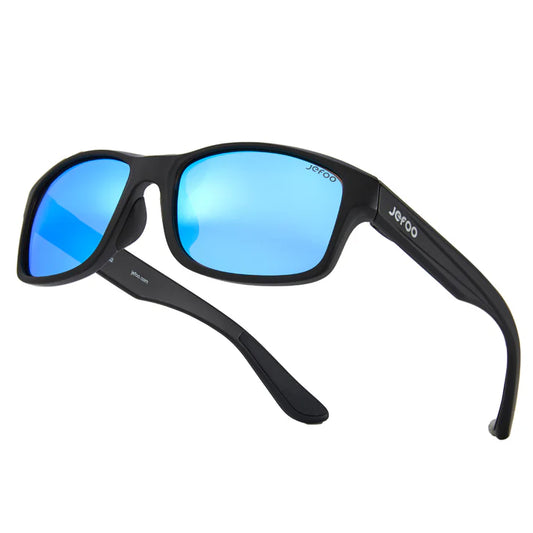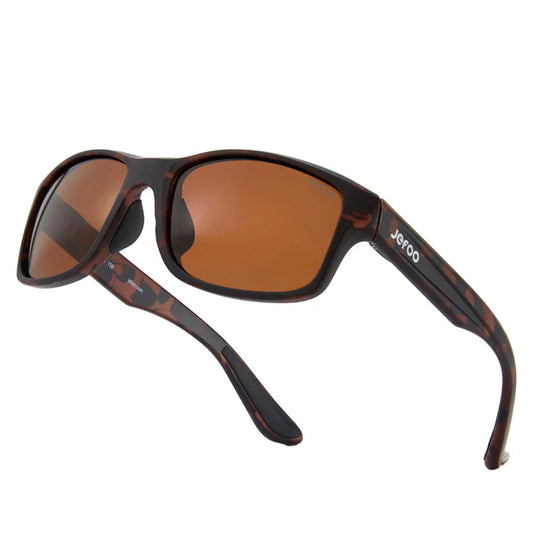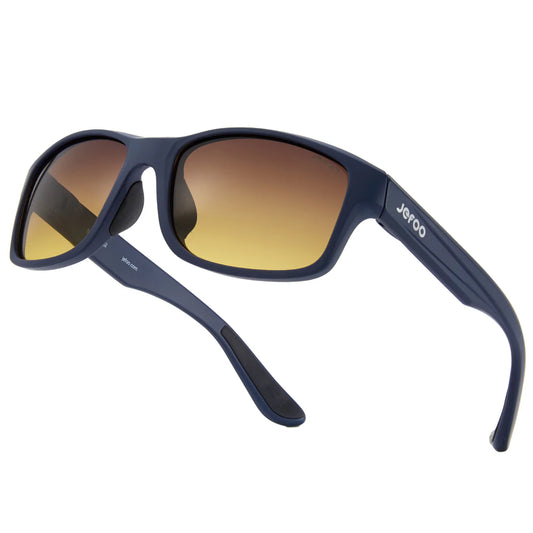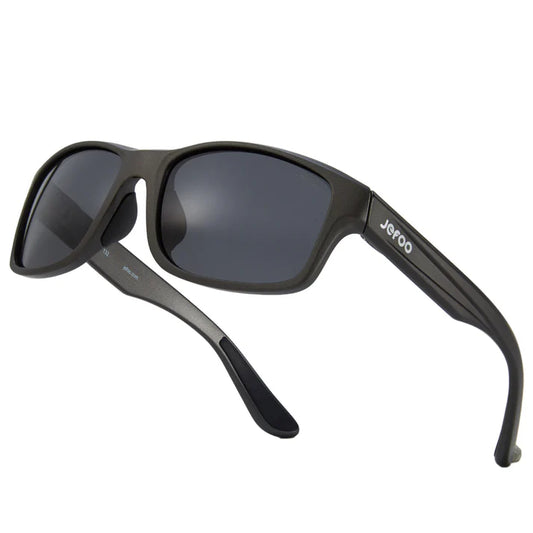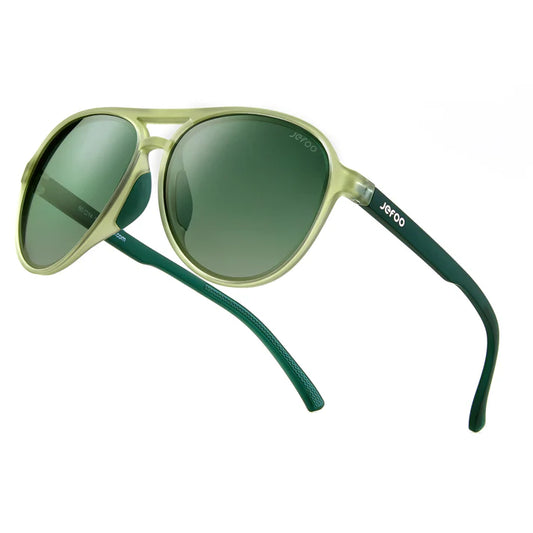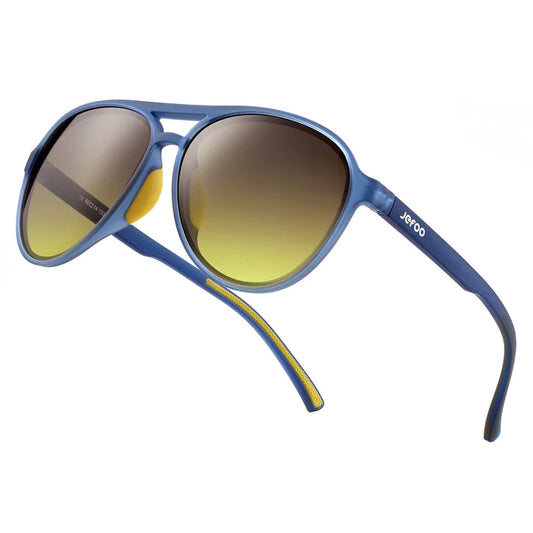-
Trendy Cat Eye Sunglasses · Apricot Gray JF169
Regular price $26.50 USDRegular priceUnit price per$36.69 USDSale price $26.50 USDSale -
Sports Cat Eye Sunglasses · Tortoise JF169
Regular price $26.50 USDRegular priceUnit price per$36.69 USDSale price $26.50 USDSale -
Tinted Cat Eye Sunglasses · Aquamarine Blue JF169
Regular price $26.50 USDRegular priceUnit price per$36.69 USDSale price $26.50 USDSale -
Fashion Cat Eye Sunglasses · Crystal Auburn JF169
Regular price $26.50 USDRegular priceUnit price per$36.69 USDSale price $26.50 USDSale -
Cat Eye Sunglasses For Women And Men · Night Theater JF169
Regular price $26.50 USDRegular priceUnit price per$36.69 USDSale price $26.50 USDSale -
Classic Fishing Sunglasses · Blue Atlantic JF139
Regular price $26.50 USDRegular priceUnit price per$35.99 USDSale price $26.50 USDSale -
Fishing Sunglasses For Men And Women · Matte Black JF139
Regular price $26.50 USDRegular priceUnit price per$35.99 USDSale price $26.50 USDSale -
Retro Fishing Sunglasses · Blue Pacific JF139
Regular price $26.50 USDRegular priceUnit price per$35.99 USDSale price $26.50 USDSale -
Stylish Fishing Sunglasses · Magenta Turquoise JF139
Regular price $26.50 USDRegular priceUnit price per$35.99 USDSale price $26.50 USDSale -
Cute Fishing Sunglasses · Pearl Pink JF139
Regular price $26.50 USDRegular priceUnit price per$35.99 USDSale price $26.50 USDSale -
Vintage Aviator Sunglasses · Blue Agate JF119
Regular price $24.00 USDRegular priceUnit price per$35.00 USDSale price $24.00 USDSale -
Fashionable Aviator Sunglasses · Yellow Amber JF119
Regular price $24.00 USDRegular priceUnit price per$35.00 USDSale price $24.00 USDSale -
Unique Aviator Sunglasses · Pink Agate JF119
Regular price $24.00 USDRegular priceUnit price per$35.00 USDSale price $24.00 USDSale -
Stylish Aviator Sunglasses · Leopard Purple JF119
Regular price $24.00 USDRegular priceUnit price per$35.00 USDSale price $24.00 USDSale -
Chic Aviator Sunglasses · Sky Blue JF119
Regular price $24.00 USDRegular priceUnit price per$35.00 USDSale price $24.00 USDSale -
Cute Aviator Sunglasses · Barbie Pink JF119
Regular price $24.00 USDRegular priceUnit price per$35.00 USDSale price $24.00 USDSale -
Aviator Sunglasses for Women · Purple JF119
Regular price $24.00 USDRegular priceUnit price per$35.00 USDSale price $24.00 USDSale -
Unisex Aviator Sunglasses · Fresh White JF119
Regular price $24.00 USDRegular priceUnit price per$35.00 USDSale price $24.00 USDSale -
Fishing Floating Sunglasses · Ice Blue JF129
Regular price $24.00 USDRegular priceUnit price per$35.99 USDSale price $24.00 USDSale -
Water Sports Floating Sunglasses · Brown JF129
Regular price $24.00 USDRegular priceUnit price per$35.99 USDSale price $24.00 USDSale -
Polarized Floating Sunglasses · Navy Blue JF129
Regular price $24.00 USDRegular priceUnit price per$35.99 USDSale price $24.00 USDSale -
Modern Floating Sunglasses · Black JF129
Regular price $24.00 USDRegular priceUnit price per$35.99 USDSale price $24.00 USDSale -
Tinted Aviator Sunglasses · Foliage Green JF119
Regular price $24.00 USDRegular priceUnit price per$35.00 USDSale price $24.00 USDSale -
Tinted Aviator Sunglasses · Retro Blue JF119
Regular price $24.00 USDRegular priceUnit price per$35.00 USDSale price $24.00 USDSale
FQA: Polarized Sunglasses
What Are Polarized Sunglasses?
Polarized sunglasses are specialized eyewear designed to reduce glare from surfaces like water, snow, and glass. Unlike regular sunglasses, which only darken your view, polarized lenses contain a special filter that blocks intense reflected light, enhancing clarity and contrast. Polarized sunglasses provide better visual comfort and help see details and colors more vividly than standard sunglasses. Additionally, polarized sunglasses have shown impressive resilience in fashion, seamlessly integrating into subcultures, street style, haute couture, and luxury branding. From the glossy pages of Vogue to the gritty aesthetics of the British punk fanzine Sniffin' Glue, and across countless blogs, they remain a timeless accessory. From the JF119 aviator series to the collection of JF189 one-lens sunglasses, they are all premium polarized sunglasses. Customers can make worry-free choices among them based on face shape and preferences.
Can I Use Polarized Sunglasses For Solar Eclipse?
No. Polarized sunglasses are not safe for viewing a solar eclipse. Although polarized lenses reduce glare from reflective surfaces, they do not provide adequate protection against the intense solar radiation emitted during an eclipse.
When observing the sun, our pupils constrict to protect our eyes from brightness, but during an eclipse, as less of the sun is visible, the temptation to look longer increases. This can expose your eyes to intense light, potentially causing photochemical damage and heat-related issues, particularly to the macula, the part of your eye responsible for sharp vision. Regular sunglasses, even with polarized lenses, do not meet these stringent requirements and can result in serious eye damage or permanent blindness if used to view a solar eclipse.
To safely observe a solar eclipse, you need special-purpose solar filters, commonly known as eclipse glasses. Eclipse glasses are made from mylar, a strong and inexpensive polyester film, these glasses often feature a reflective metal layer, like aluminum. They are designed to protect your eyes by filtering out harmful parts of the solar spectrum. They block three key types of light: ultraviolet (UV) rays, which can cause sunburn and damage the cornea; visible light, especially the intense blue wavelengths; and infrared rays, associated with heat.
Ensure your eclipse glasses meet ISO standard 12312-2, indicated inside the glasses. Before use, inspect them under a bright light to check for any pinhole defects. Avoid using old or damaged glasses and opt for a new pair from a trusted source.
How To Tell If Sunglasses Are Polarized?
To determine if your sunglasses are polarized, try these simple tests:
1.LCD Screen Test: Polarized lenses make LCD screens appear very dark. Increase the brightness on your screen, open a blank white document, and look through your sunglasses while rotate your sunglass 90 degree to vetical. If the screen turns black, the lenses are polarized.
2.Reflected Light Test: Hold the sunglasses in front of your eyes and rotate them. Polarized lenses will reduce glare from reflective surfaces like water or glass.
3.Two Pair Test: Compare your sunglasses with another pair known to be polarized. Hold both pairs up to your eyes, with the known polarized pair farther away. Rotate the unknown pair by 60-90 degrees. If the overlapping lenses create a darker area, both pairs are polarized.
Are Polarized Sunglasses Better?
As summer approaches, you might find yourself on the lookout for seasonal essentials like swimsuits, hats, and, of course, sunglasses. With countless styles to choose from, selecting the perfect pair can be overwhelming. Among the myriad options, you may encounter the choice between polarized and nonpolarized lenses. While the term ""polarized"" is familiar to many, its significance and impact on eye health might not be as widely understood.
Polarized sunglasses are designed to significantly reduce eye strain and eliminate blinding glare caused by light reflecting off various surfaces. Unlike standard lenses, polarized lenses filter out glare and reflected light, enhancing vision clarity, especially in bright conditions. This feature is particularly beneficial outdoors, around water, snow, or other reflective surfaces, making activities like driving, fishing, or skiing safer and more comfortable. By minimizing brightness and glare, polarized sunglasses help reduce eye fatigue and improve visual acuity, ensuring that objects remain sharp and clear even in intense sunlight.
However, it’s essential to note that polarized lenses do not offer more UV protection than standard 100% UV lenses. Both types protect your eyes from harmful UV rays, but the added benefits of polarization lie in the enhanced comfort and clarity they provide in bright environments.
What Do Polarized Sunglasses Do?
Polarized sunglasses are designed to combat glare by utilizing a special lens technology that selectively filters light. This concept traces back to 1808 when French physicist Etienne-Louis Malus discovered that light waves, which typically vibrate in all directions, could be aligned in a single direction when reflected.
When reflected off a horizontal surface, it travels in a concentrated, horizontal beam, creating the glare we experience. This glare can overwhelm the eyes, making it difficult to see and leading to squinting.
To counteract this, polarized lenses employ a vertical filter that blocks horizontal light waves while allowing vertical light to pass through effectively reducing glare from surfaces like water or roads. This process is achieved by applying a vertical polarization layer either on the surface or between layers of the lens.
Polarized sunglasses are especially beneficial in various conditions. For instance, anglers benefit from reduced glare on the water, boaters experience less eye strain, and beachgoers enjoy clearer vision with less glare from sand and water. Polarized sunglasses generally offer superior comfort and clarity, reducing eye strain during prolonged exposure to bright conditions.
How Do Polarized Sunglasses Work?
Polarized sunglasses work by filtering out horizontal light waves, which are typically responsible for glare. This is achieved through a special chemical coating on the lenses. When light reflects off flat surfaces, it becomes horizontally polarized, creating intense glare. The polarized lenses have a vertically oriented filter that blocks these horizontal waves, allowing only vertical light to pass through. By cutting out the scattered light, polarized sunglasses improve contrast and color perception, making outdoor activities much safer and more enjoyable.
Understanding Light and Glare:
Light waves travel in many directions. When sunlight reflects off a horizontal surface, it often becomes polarized, meaning the light waves align horizontally. This horizontal light causes glare, which is uncomfortable and can obscure vision.
The Polarization Process:
Polarized lenses have a chemical coating that filters light. This coating is typically applied in a vertical pattern. When light hits the polarized lenses, the vertical filter blocks the horizontally polarized light waves. This selective blocking of horizontal light significantly reduces glare while allowing other light to pass through, enhancing visual clarity and comfort.
Do I Need Polarized Sunglasses?
Yes. If you are the one who spends time on bright sunny days. Polarized sunglasses excel in enhancing visual comfort and clarity. They effectively reduce glare from reflective surfaces that can be both distracting and blinding. This glare reduction provides a clearer and more comfortable view.
Additionally, polarized lenses enhance contrast and color perception, allowing you to see objects more distinctly. This improvement in visual clarity means less squinting and reduced eye strain, which is particularly beneficial during prolonged exposure to bright sunlight.
Protection against harmful ultraviolet (UV) rays is another critical benefit of polarized sunglasses. They help prevent eye conditions like cataracts, macular degeneration, and photokeratitis (sunburn of the eye). Ensuring your polarized sunglasses offer UV protection safeguards your long-term eye health
When you are driving down the highway on a radiant sunny day, even with tinted windows, your eyes remain exposed to harmful UV rays that penetrate the glass. Prolonged exposure while driving can lead to significant vision issues. Moreover, sunlight reflecting off surfaces can temporarily blind you, risking control of your vehicle. The consequences of such glare can be severe, making polarized sunglasses an essential safety measure. They reduce this blinding glare, ensuring a clearer, more comfortable, and safer driving experience.
Besides driving, these sunglasses are valuable for outdoor activities. Anglers can see beneath the water's surface, skiers and snowboarders can navigate slopes with reduced glare, and cyclists and runners enjoy improved vision on sunny days. Polarized sunglasses make outdoor activities more enjoyable and less taxing on the eyes, ideal for anyone spending time outdoors.
What Does Polarized Mean In Sunglasses?
Polarized sunglasses contain a special filter that blocks intense reflected light. The polarization process involves aligning the molecules in the lens to create vertical openings. This arrangement allows vertical light to pass through while blocking horizontal light, which is typically the source of glare. As a result, polarized lenses enhance visual clarity and contrast, reduce eye strain, and improve overall comfort. Besides, polarized sunglasses typically appear similar to regular ones. While denser films may result in darker lenses, the color of the lens does not dictate its level of polarization. A very dark pair of sunglasses with a lighter film won't block more glare than a lighter pair with a denser film. Lens colors vary and, though they can't be clear, polarized lenses can come in shades like grey, brown, yellow, green, and more.
What Is The Difference Between Polarized And Non Polarized Sunglasses?
Polarized and non-polarized sunglasses both reduce the brightness of a sunny day, yet their differences are significant. The primary difference between polarized and non-polarized sunglasses lies in how they manage light.
Polarized sunglasses have a special filter that blocks intense reflected light, and cuts down reflections. This makes them particularly useful for outdoor activities such as fishing and boating, where they minimize reflections on water surfaces and enhance visibility. Additionally, polarized sunglasses can improve scenic views by increasing contrast and rendering the sky a deeper blue, benefiting those with light sensitivity depending on the lens's darkness. When it comes to driving, polarized sunglasses offer a distinct advantage by filtering sunlight that reflects off roads, snow, and windshields, thus reducing glare and providing a clearer, more comfortable view. This can significantly improve safety during sunny conditions.
Non-polarized sunglasses primarily reduce the overall intensity of light reaching the eyes. While they also protect against harmful UV rays and can reduce some glare, they do not have the same level of glare reduction as polarized lenses. In bright overcast conditions where glare is less of an issue, non-polarized sunglasses may offer better visibility due to their performance in low-contrast settings. In snowy or icy conditions, non-polarized sunglasses can sometimes be safer, as polarized lenses might make it harder to see patches of ice, which are already challenging to detect. Viewing digital screens, non-polarized sunglasses do not cause this issue that polarized lenses may distort the image, making screens appear faded or even completely dark depending on the angle. Thus, non-polarized sunglasses are a better choice for screen usage. If you experience digital eye strain, it's advisable to consult with an eye care professional before choosing polarized lenses, as they might recommend computer glasses that focus on screens and filter blue light.
In summary, if your primary concern is glare reduction and enhanced visual clarity in high-glare environments, polarized sunglasses are the better choice.
How To Clean Polarized Sunglasses?
To clean polarized sunglasses, follow these steps:
1.Rinse: Use lukewarm water to rinse off dust and debris.
2.Apply Cleaner: Use a lens cleaner or a mild dish soap solution.
3.Gently Clean: With your fingers, gently rub the lenses.
4.Rinse Again: Rinse off the cleaner with water.
5.Dry: Use a microfiber cloth to dry and polish the lenses.
Avoid using paper towels, clothing, or harsh chemicals, as they can scratch or damage the lenses. Regular cleaning keeps your polarized sunglasses clear and effective.
Are All Sunglasses Polarized?
No, not all sunglasses are polarized. Polarized sunglasses have a special coating that reduces glare from reflective surfaces like water or roads. Standard sunglasses only reduce overall brightness but don't address glare. To ensure your sunglasses are polarized, check for a polarization label or test them with a reflective surface. Jefoo sunglasses all collections including aviators JF119, floating sunglasses JF129, fishing sunglasses JF139, flat top sunglasses JF159, cat eye sunglasses JF169, square sunglasses JF179, one lens sunglasses JF189 are polarized.
Are Polarized Sunglasses Better For Driving?
Yes, polarized sunglasses are generally better for driving. Imagine cruising down the street on a brilliant afternoon, your favorite tunes filling the car, the AC wrapping you in a cocoon of cool air, and cruise control managing your speed. The sun blazes outside, yet it feels like a smooth drive. However, the tinted windows don't block UV rays, which penetrate the glass and can harm your eyes. Prolonged exposure to these rays while driving can lead to significant vision issues.
Moreover, sunlight reflecting off surfaces can cause a blinding glare, risking your control of the vehicle. The dangers of such glare can be severe, highlighting that the drive isn't as safe as it appears. Polarized sunglasses reduce glare from reflective surfaces, which enhances visibility and reduces eye strain. These lenses enhance contrast in foggy or hazy conditions, sharpening details obscured by mist. This can make driving safer and more comfortable.
Can Pilots Wear Polarized Sunglasses?
It's generally not advisable for pilots to wear polarized sunglasses. While polarized lenses are excellent at reducing glare from reflective surfaces, they can interfere with the visibility of LCD displays found in cockpits, such as navigation and communication screens. This interference can be problematic, as pilots rely heavily on these screens for vital information during flights.
Have you ever noticed how screens seem to behave strangely when viewed through polarized sunglasses? At certain angles, a screen that was previously crystal clear can suddenly become almost completely obscured. This phenomenon occurs due to the interaction between polarized sunglasses and the polarized light emitted by screens. Screens use layers of polarized filters to display images correctly, relying on backlighting to function. The light emitted from these screens is polarized, similar to how light reflects off water surfaces.
When poilot wear polarized sunglasses, they filter out specific orientations of polarized light to reduce glare. However, this means that when the polarized light from a screen aligns with the filter in your sunglasses, it can block the light entirely. This results in the screen appearing dark or even black at certain angles. While polarized sunglasses effectively reduce environmental glare, this interaction with electronic devices can be an unintended and potentially hazardous consequence for pilots.
Do Polarized Sunglasses Block UV?
Polarized sunglasses are popular for their ability to reduce glare, making them a favorite among those who spend a lot of time outdoors or on the water. But a common question arises: do polarized sunglasses block UV rays?
The answer is that polarization and UV protection are two distinct features in sunglasses. Polarized lenses are specifically designed to filter out horizontal light waves, which are responsible for the glare you experience when sunlight reflects off surfaces like water, snow, or roads. This results in clearer, more comfortable vision and reduces eye strain.
However, the ability of sunglasses to block UV rays depends on the UV protection coating applied to the lenses, not on the polarization itself. Ultraviolet (UV) rays from the sun can cause significant damage to the eyes, including cataracts, macular degeneration, and even cancer of the eyelids. Therefore, it's crucial for sunglasses to provide 100% UV protection.
Many polarized sunglasses are equipped with UV protection, but it's essential to verify this feature before purchase. Always check the label or product description to ensure the sunglasses offer complete protection against both UVA and UVB rays. It's worth noting that the darkness of the lenses doesn't correlate with UV protection. Even very dark lenses can let harmful UV rays through if they lack the proper coating.
In summary, while polarized sunglasses are excellent for reducing glare and enhancing visual clarity, they do not inherently block UV rays. It's the UV protection coating that ensures your eyes are shielded from harmful UV radiation.
All Jefoo polarized sunglasses have a UV400 protection coating. Always look for sunglasses that offer both polarization and 100% UV protection to keep your eyes safe and comfortable.
Where To Buy Polarized Sunglasses?
If you're looking to buy polarized sunglasses, several options can help you find the perfect pair. Online retailers offer a wide selection, often with customer reviews to guide your choice. For a personalized experience, visit your local optical shop where you can try on different styles and receive professional advice. Remember to consider factors like lens quality, frame comfort, and UV protection to ensure you make a choice that meets your needs.
Do Polarized Sunglasses Block Blue Light?
Yes, polarized sunglasses can block blue light outdoors, while sunlight is the primary source of blue light, which is much more than the amount of exposure from the screen. The polarized lenses are crafted with a special coating, which is vertically blocks reflected horizontal light from flat surfaces. This means that only light rays that travel vertically can pass through the polarized lenses. Consequently, this selective filtration reduces the overall amount of light that reaches your eyes, including the amount of blue light. Health experts caution against the high-energy blue light waves. To block blue light outdoors, the key lies in the lens tint. When shopping for sunglasses, it's crucial to pay close attention to the lens color, similar to selecting blue light glasses. Dark amber, yellow, or brown tinted lenses should be your top priority. All Jefoo polarized sunglasses are equipped with UV400 coating and block blue light outdoors.
However, indoor sources such as flat-screen televisions, fluorescent bulbs, and LED lighting also emit blue light. Do polarized sunglasses block blue light from computers? It's best to avoid them. The polarization filter can distort your vision when viewing laptops or other digital and LED screens. Please use blue light glasses when viewing computer screens, which specifically target harmful blue light without distorted vision. These glasses are equipped with lenses that feature a special blue light-blocking filter. This filter shields your eyes from the damaging blue light emitted by computer screens and other digital devices.
Are Polarized Sunglasses Good For Golf?
Yes. Polarized sunglasses are incredibly beneficial for golfers, particularly when it comes to tracking the ball in the air. On the course where holes in the morning are directly into the sun, it is nearly impossible to follow the ball without polarized lenses. These polarized sunglasses help filter out the harsh glare, ensuring that the golfer can see the ball clearly against the bright sky.
Polarized sunglasses can also enhance green reading by reducing glare and boosting contrast, essential for assessing the terrain and slope of the green accurately. By filtering out horizontal light waves, polarized lenses minimize glare from the wet grass that reflects the morning light and holes are directly illuminated by the sun. This helps golfers maintain focus without being distracted by bright spots or reflections. Additionally, these sunglasses can highlight the contrast between different shades of green, making it easier to identify subtle changes in the grass and accurately read the break and slope of the green.
Moreover, the eye comfort provided by polarized sunglasses allows golfers to keep their eyes relaxed and focused, enhancing visual acuity. Less eye strain means a better ability to notice subtle changes in the green that could impact the putt. With reduced glare and improved contrast, golfers can also experience better depth perception, crucial for accurately judging distances.
However, it’s important to note that while polarized lenses offer these benefits, some golfers might still be confused that polarized sunglasses might reduce depth perception due to the way they filter light. Please always opt for premium polarized sunglasses for their ability to provide clear vision and UV protection without distortion. The quality of the lenses is crucial for golfers, as poor-quality sunglasses often distort vision and cause eye strain in various situations, not just on the golf course. At Jefoo, you can get a pair of quality polarized sunglasses for golf without reducing depth perception and distortion.
Can Polarized Sunglasses Give You A Headache?
Usually not, but it happens when the lenses are of poor quality, too tight frames, or there are manufacturing defects, which can lead to visual distortions, contributing to discomfort and headaches. Always ensure you choose high-quality polarized sunglasses and give your eyes time to adjust to the new lenses. Jefoo collection flat top sunglassesJF159, cat eye sunglasses JF169, square sunglasses JF179, and one lens sunglasses JF189 are equipped with high-quality TAC polarized Lenses and adjustable temple tips that suit various face sizes and shapes, avoiding headaches.
Do Pilots Wear Polarized Sunglasses?
Pilots typically avoid wearing polarized sunglasses while flying for several reasons. Although polarized lenses can reduce glare from reflective surfaces, they may interfere with the ability to read digital screens and instruments in the cockpit. Aircraft cockpits are filled with various displays and instruments that use LCD or LED screens, which can appear distorted or even disappear entirely when viewed through polarized lenses. This distortion occurs because polarized lenses filter light in a specific orientation, which can conflict with the polarized light emitted by these screens.
Additionally, polarization can diminish the visibility of other important visual cues. For instance, reflections from other aircraft or bodies of water can be crucial for situational awareness and navigation. Polarized sunglasses can reduce or eliminate these reflections, potentially obscuring important information and creating safety hazards.
Non-polarized sunglasses are often preferred by pilots because they provide consistent clarity without distorting crucial visual information. These sunglasses still offer protection against harmful UV rays and reduce overall brightness, making them suitable for use in bright conditions without compromising the visibility of instruments and screens. They also help reduce eye strain and fatigue during long flights, contributing to overall comfort and alertness.
Many pilots choose aviator-style sunglasses, which are designed with large lenses to cover the entire field of vision and thin temples to fit comfortably under headsets. These sunglasses are typically non-polarized, providing the necessary protection and visual clarity needed for flying. Besides pilots, people in other professions can also choose aviator glasses. Look through our collection aviator sunglasses JF119 and pick a pair of lightweight and no slip aviators here.
In summary, while polarized sunglasses are excellent for reducing glare in many outdoor activities, they are not ideal for pilots due to potential interference with cockpit displays and the reduction of important visual cues. Pilots generally opt for high-quality, non-polarized sunglasses to ensure clear, unobstructed vision and maintain safety during flight operations.
Do Polarized Sunglasses Protect Your Eyes?
Yes, polarized sunglasses protect your eyes by reducing glare from shinny surfaces like snow, water, buildings, car windows, roads and glass, which can be particularly harmful to your vision. The special polarized filter in these lenses blocks intense reflected light, enhancing visibility and reducing eye strain. They also provide 100% UV protection, shielding your eyes from harmful UVA and UVB rays. This helps prevent eye strain and long-term damage like cataracts and macular degeneration.
What Polarized Sunglasses Are The Best?
The best polarized sunglasses offer superior glare reduction and 100% UV protection and elevate your style. Durability, scratch resistance, and a lightweight, comfortable fit are essential qualities to serve them as the best. Anti-reflective and hydrophobic coatings polarized sunglasses stand out as the pinnacle of eyewear for ensuring optimal performance in various conditions. Always choose the premium polarized sunglasses and Jefoo won't let you down.
What Are The Disadvantages of Polarized Sunglasses?
Polarized sunglasses reduce glare, but they have some disadvantages. They can make it difficult to see LCD screens on devices like phones and car dashboards. Polarized lenses can also be more expensive than non-polarized ones. In low-light conditions, they may reduce visibility, making them less suitable for dawn, dusk, or indoor use. Additionally, people with specific vision conditions or those undergoing certain eye treatments might find polarized lenses uncomfortable. At Jefoo, you could get quality polarized sunglasses at affordable price among $20+ to $30+.
Can You Wear Polarized Sunglasses At Night?
Wearing polarized sunglasses at night is generally not recommended. Polarized lenses are designed to reduce glare by filtering out horizontal light waves, which is helpful in bright conditions. However, at night, this feature can actually reduce visibility by dimming already low light levels. This can make it harder to see pedestrians, road signs, and other potential hazards, increasing the risk of accidents. Instead, it's better to use clear or lightly tinted lenses specifically designed for night driving. These lenses can enhance contrast without significantly reducing overall light, helping you see more clearly and stay safer on the road. Jefoo is going to launch night vision glasses in the near future. Coming Soon!

